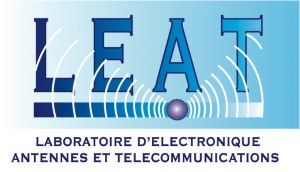Position and Activity monitoring Platform based on IoT technology
Partners : Abeeway, Nively, LEAT, Da Nang University




Motivation : Ageing is associated with significant decline in psychological, physical, and social functions contributing to disability as well as the loss of autonomy, dignity and quality of life. In particular, it is well known that aging is directly related to increase in Mild Cognitive Impairments (MCI). It is important, at the public health and economic levels, to preventively act against prodromal signs of cognitive disability early when the process is still sensible to effective implementation of specific tailored interventions.
The assessment and care of cognitive frailties can be addressed by considering different aspects. A number of studies have shown the impact of MCI on the Activities of Daily Living (ADL). The monitoring of activities related to household, food preparation, use of telephone, etc. can provide information about cognitive aspects such as memory, executive functions, spatial orientation and attention. Moreover, it has been verified that having an active social life decreases the risk of CIs. Social life relates to every activity which is carried out outside the house including walking, being involved in charity, going shopping, being member of centers for old people, etc.
In this framework, the objective of this project is the creation of a prototype of a wearable device enabling the monitoring of elderly people during their everyday activities based on Internet-of-Things (IoT) technologies. The device will enable hybrid (outdoor and indoor) localization, allowing elderly people to be located in case of emergency (e.g. typical case of an old person suffering of Alzheimer’s disease who gets lost in town). Localization will be based on the smart use of a variety of data sources, such Global Positioning System (GPS) receiver, WiFi and Bluetooth modules, which will be all included in a single wearable device, designed for use by elderly people and to minimize energy consumption. The device will also include an accelerometer, whose data will be used to identify the movements of the monitored person. The collected information will be sent through a low-power standard LoRa communication channel to a web service that will process the data.
The starting point for the creation of the prototype will be an already existing IoT platform resulted from a scientific collaboration between LEAT and Abeeway. This platform is a miniaturized tracker, which can be attached to the object whose position needs to be tracked. It already includes a GPS receiver and the WiFi, Bluetooth and LoRa modules. In this project, LEAT has been responsible for the design and testing of a miniaturized multiband antenna solution covering all the operating frequency bands of the device.
The work will be aimed at further exploiting this research work, by extending the operation of the already existing IoT platform on the human body, making the device suitable for e-health application. To this end, two main activities will be carried on: the modification of the antenna to maintain an acceptable radiation efficiency when operating in close proximity of the human body, and the variation of the shape of the device to better fit with wearable e-health application.
This RF circuit design is associated to a low power electronic unit to transmit the collected data to an IoT server containing some mapping and statistical modules. The decoded information is then accessible via an Application Programming Interface (API) for specific applications.
Abeeway API will be integrated into Nively’s middleware, so that the device will be used as source of information for Location Based Services (LBS). The software solution developed by Nively allows localizing people and analyzing their spatial behavior across indoor and outdoor spaces using a variety of different hardware. This is done in a hardware-agnostic way which provides a software abstraction layer on top of low-level location hardware. Nively’s experience in dealing with caring and assistance of aged people (acquired for example during the EC-funded project UNCAP, www.uncap.eu) will be fundamental to collect the requirements for use in real life scenarios and to define a new shape for the device that would be accepted by aged people (e.g., a bracelet).
The realized prototype will act as a demonstrator for LEAT as well as for the industrial partners of the project. It will constitute an example of the research activities of LEAT in the design of miniaturized and energy efficient multiband antennas for IoT systems. The prototype will show the integration of the antenna into a final device, allowing for analyses of the integration effects and measurements of the antenna performance in a real application scenario. Moreover, the prototype will permit in field evaluation and testing, thus taking into account several additional aspects as the power consumption or network performance. Analogously, Abeeway will exploit the prototype to demonstrate the capability of its electronic platform to be suitable for on-body applications. Finally, Nively will introduce the prototype to assess how to complement its indoor localization technology available in their MentorAge® product line for monitoring of elderly people, with introduction of outdoor positioning based on LoRa communication channels.
The realized prototype will exploit the advantages of two different networks: the IoT dedicated low-power LoRa network for the communication of the outdoor data, and the WiFi and Bluetooth networks used for indoor positioning and activity monitoring, also leveraging on additional indoor location information which can be inferred from Bluetooth receivers (e.g. beacons). Moreover, particular attention will be paid to the power consumption of the prototype. Since the human body absorbs the electromagnetic radiation, the antenna of the device will be optimized with the aim of maximizing its energy efficiency and thus guaranteeing an acceptable and reliable wireless communication link. Finally, the work perfectly fits in the Labex application domain about “E-santé”. The test of the prototype will provide precious information about the possibility of developing a scalable and reliable solution based on low-cost low-power wearable IoT technologies to improve assistance at home of aged people.
